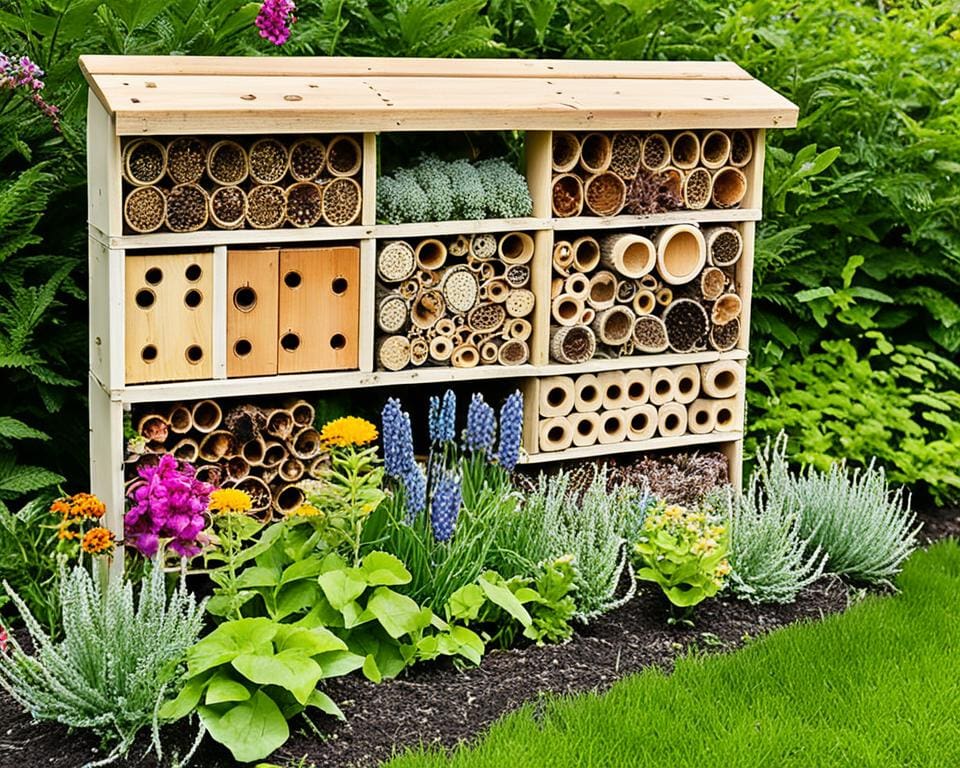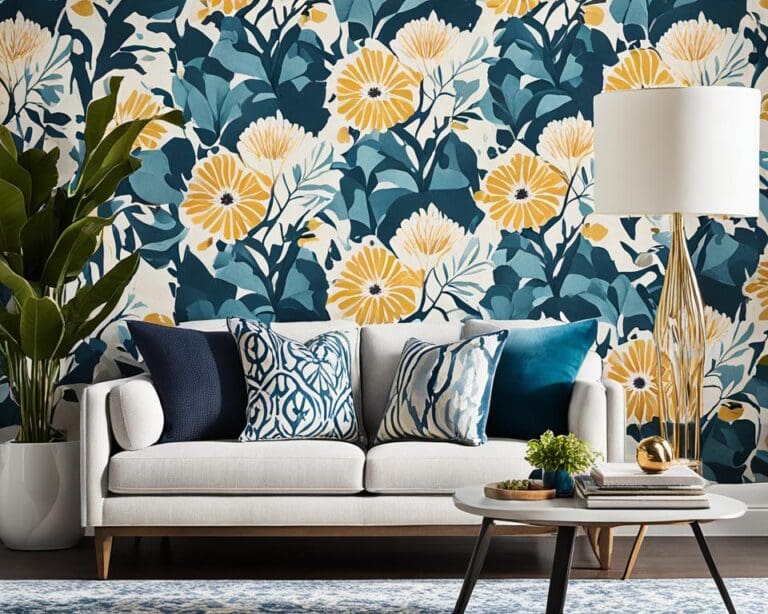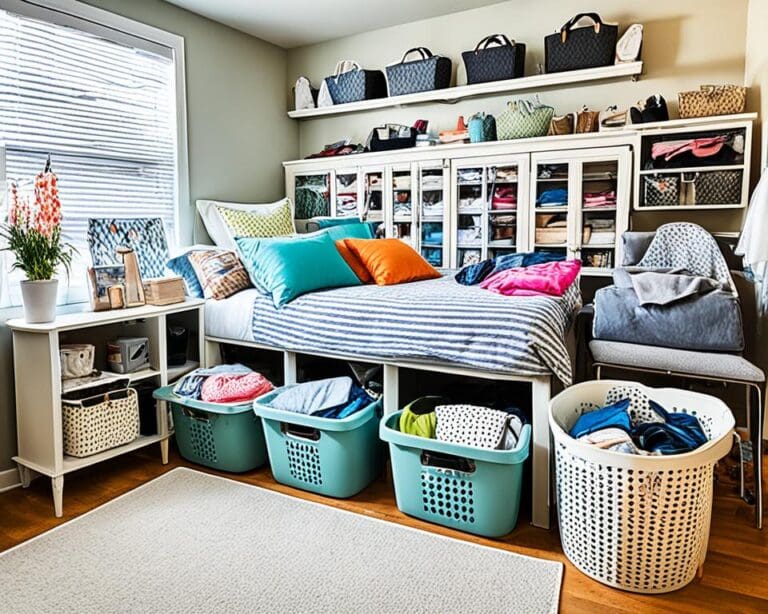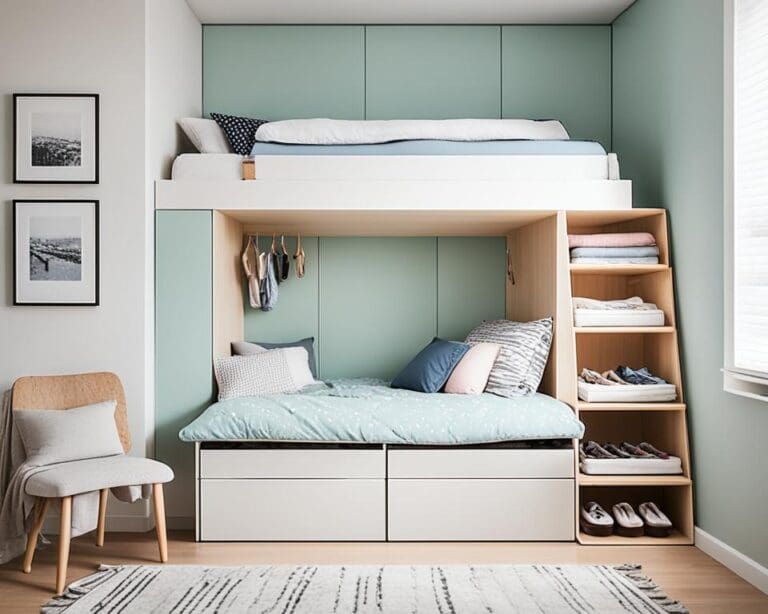Biodiversity is crucial for healthy ecosystems, and gardens are great for conservation. Insect Hotels provide safe spaces for beneficial bugs, helping gardens thrive. With around 2,000 insect species in a garden, attracting various pollinators and pest controllers is vital.
About 35% of the world’s food crops need animal pollinators to grow, says the USDA’s Natural Resources Conservation Service. Insect hotels boost the number of helpful insects. This is important because the U.S. saw a 42% drop in bee colonies in 2015. By using Insect Hotels, gardeners help preserve crucial species and create a lively garden.
Understanding Insect Hotels and Their Importance
Insect hotels or bug hotels serve as vital living spaces for many insect species. They mimic natural environments, helping insects prosper. Urban development takes away natural habitats, making insect hotels increasingly important. They restore these habitats and support wildlife conservation.
What are Insect Hotels?
Insect hotels provide shelter and nesting spaces for helpful insects. Made mainly from wood, they resemble the insects’ natural homes. Each design caters to specific species. Solitary bee houses and ladybird houses are great examples. These structures are key for maintaining healthy pollinator communities.
Role of Insect Hotels in Supporting Biodiversity
Insect hotels play a big role in wildlife preservation by offering safe spaces for insects. Over 80% of plants need insects for pollination. Insect hotels attract crucial species like solitary bees and butterflies. They help balance the ecosystem, especially with habitat loss growing.
By adding insect hotels to gardens, people help restore insect habitats. This action supports biodiversity and helps many plants survive.
Benefits of Attracting Beneficial Insects
Insect hotels have many benefits. They improve pollination which helps plants grow better. This leads to healthier gardens. They also naturally control pests, reducing the need for chemicals. Moreover, they educate communities about ecology. Attracting various insects enriches garden biodiversity and promotes sustainability.
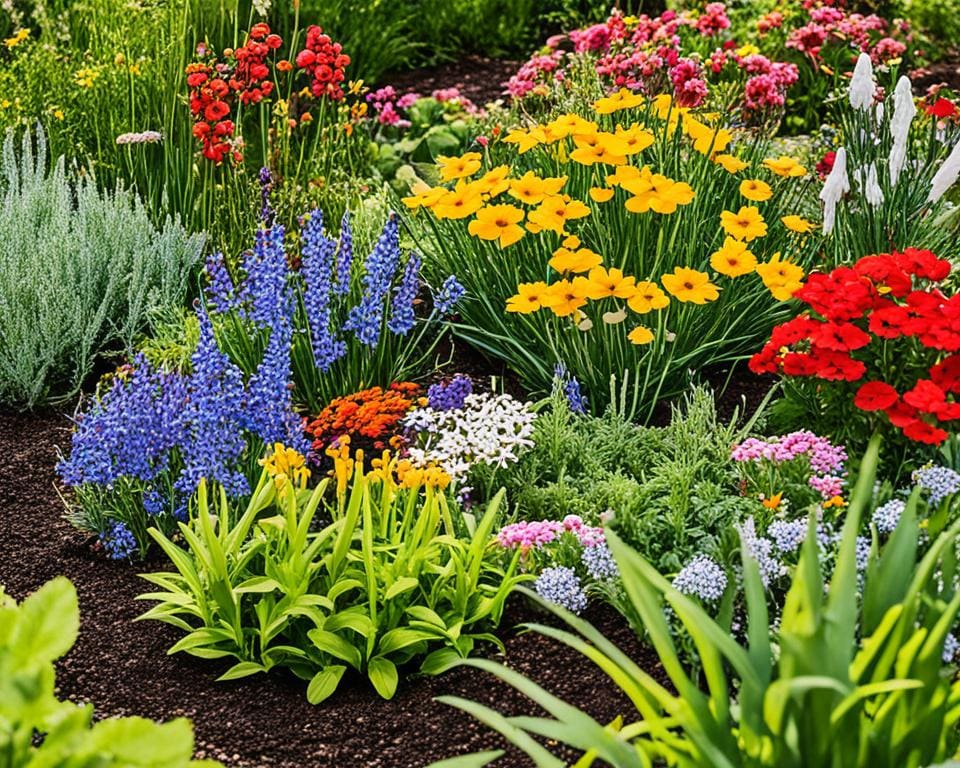
Insect Hotels: Encouraging Biodiversity in Your Garden
Making a home for helpful bugs is key to keeping your garden healthy and full of life. Insect hotels are places where these insects can safely live, nest, and sleep during winter. It’s important to know what different insects like when you make your insect hotel.
Creating Ideal Habitats for Beneficial Insects
Designing your insect hotel to attract certain bugs can help your garden a lot. For instance, solitary bees love tiny tubes, and ladybirds look for cozy spots. Knowing what they need lets you build homes that help both the bugs and your garden.
Designing Your Custom Insect Hotel
You can make your insect hotel both useful and good-looking. Use safe materials like wood, bamboo, and stems. Avoid anything treated with chemicals. Adding different materials can draw in more types of insects. Also, placing the hotel in a warm, protected spot will bring more bugs to help your garden.
Choosing Materials: What Works Best?
Choose natural and local items for your insect hotel. Tubes that are smooth and free of splinters are best for bees. Make sure your hotel stays dry and lasts a long time. Check it often. Fix or replace parts every few years to help your garden stay green and lively.

